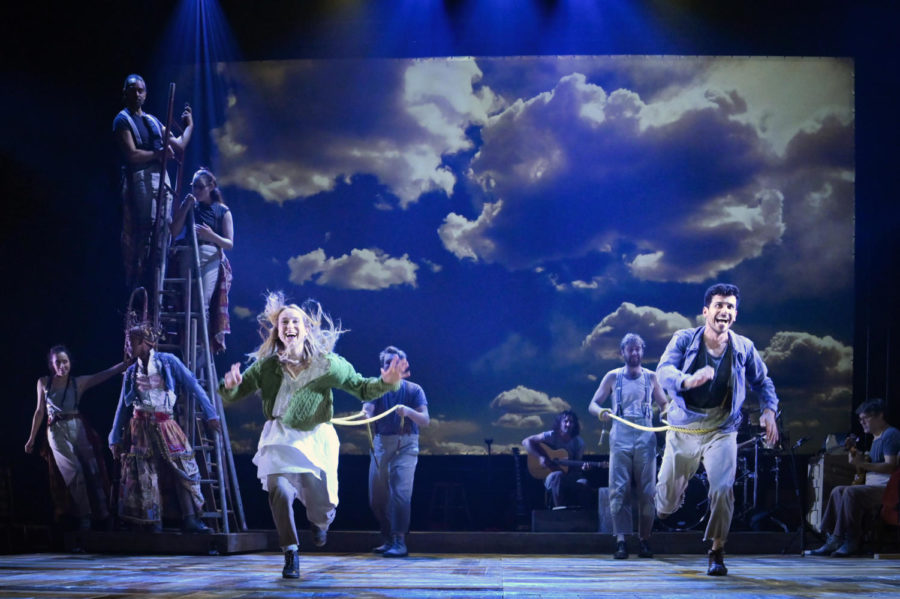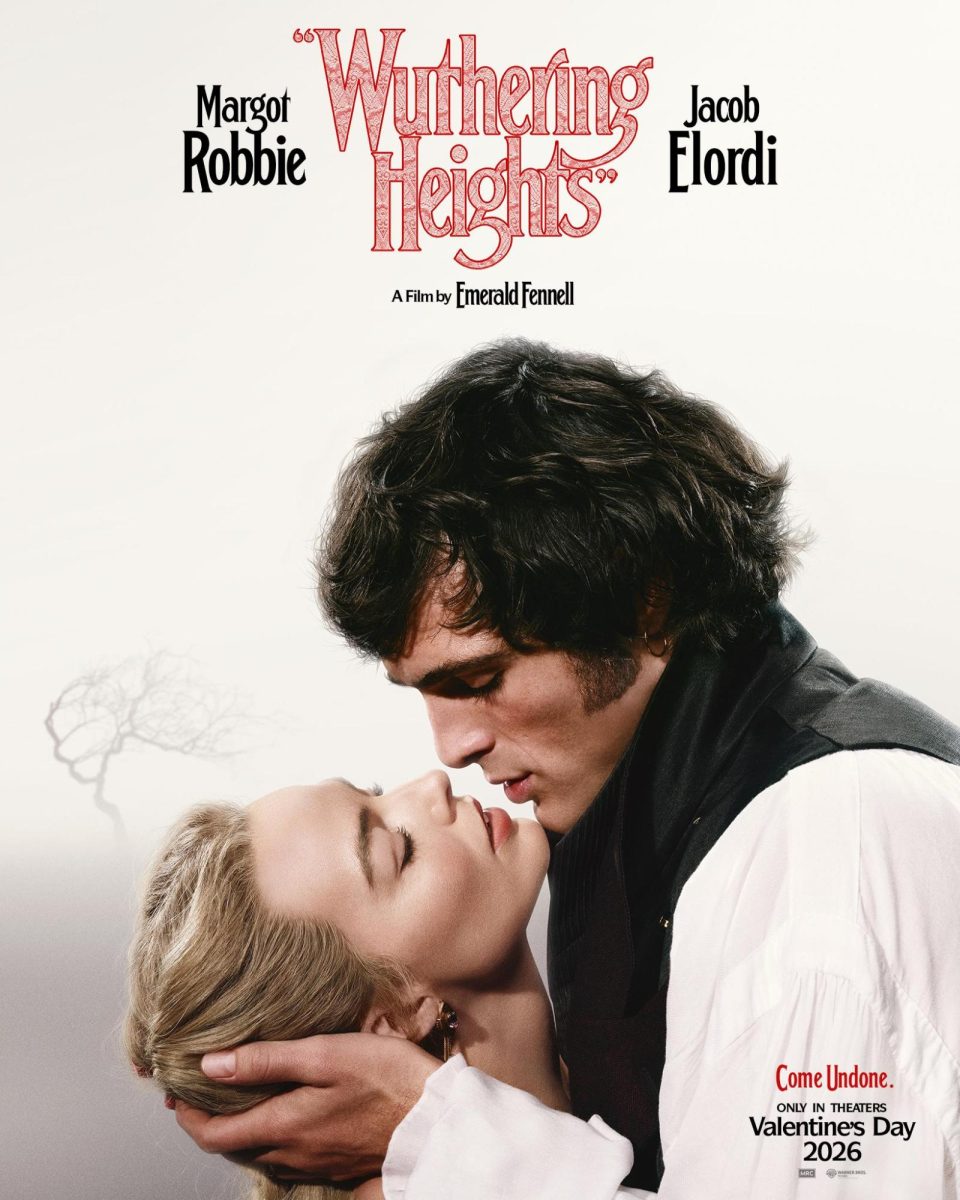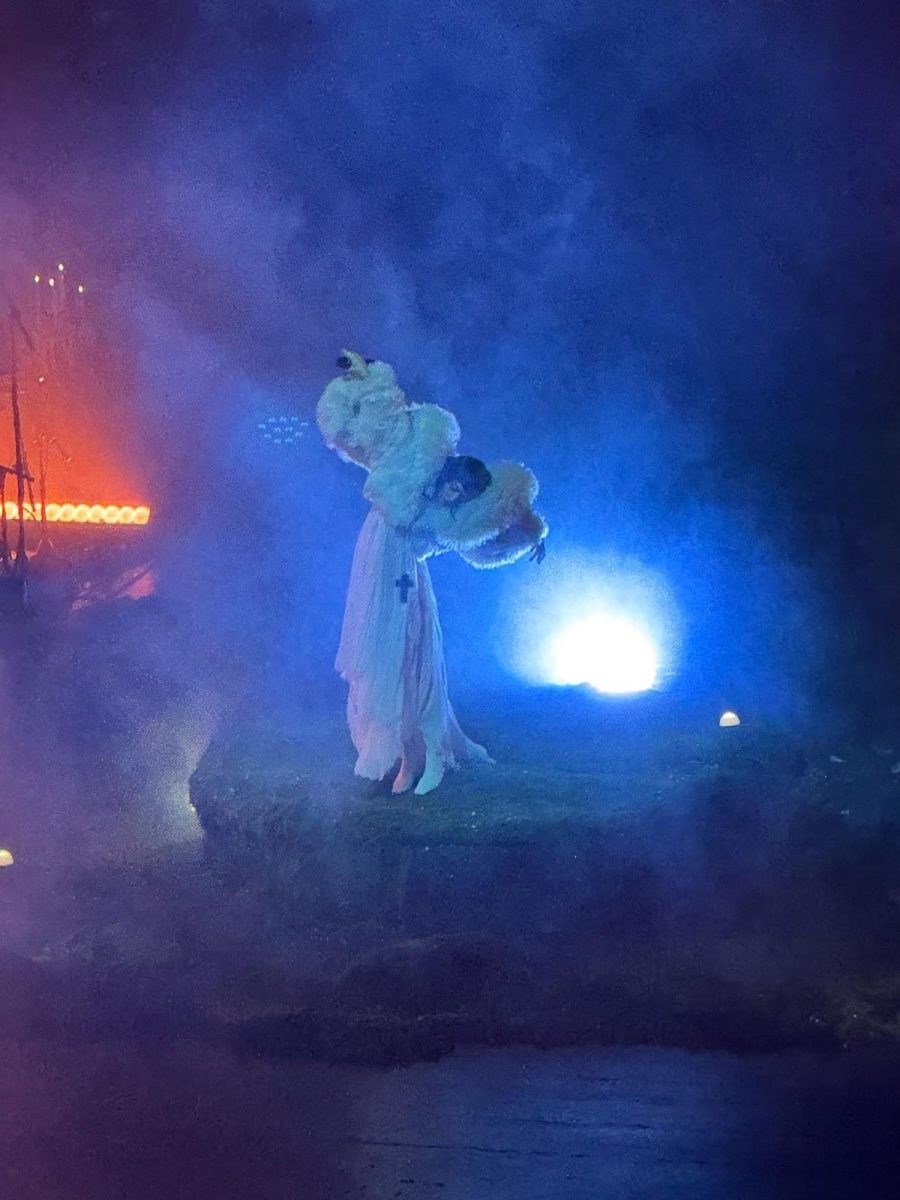From London’s National Theatre to Navy Pier’s Chicago Shakespeare Theater comes Wise Children and Berkeley Repertory Theater’s production of Wuthering Heights, based on the 1847 novel of the same name by Emily Brontё. Emily Rice’s musical adaptation is flamboyant and flashy but lacking in substance. It reduces a famously nuanced exploration of revenge, passion, and classism to a dull blend of romance and abusive relationships.
The play is fairly faithful to the novel except for two serious—and unfortunate—differences: In this performance, Catherine Earnshaw’s genuine, overly simplistic and sweet affection for her adopted sibling Heathcliff paints the play too romantically. Rice also chooses to replace the novel’s narrator—the Earnshaws’ maid Nelly—with a five-character personification of the Yorkshire moors. The consequence of this decision is that in every scene that seeks dramatic power, in which characters stand in the foreground kissing or dying or otherwise evoking pathos, a “Moor” stands in the background doing with their arms what this reviewer can only describe as “wuthering.” The result is quite distracting.
Living at the Wuthering Heights estate, Catherine and Heathcliff are tormented by Catherine’s brother Hindley Earnshaw. When the siblings’ father dies, Hindley forces Heathcliff into servitude. One day, Catherine and Heathcliff, gallivanting through the Moors (again, literally five people swooping about the stage), come across the more opulent Thrushcross Grange estate of siblings Edgar and Isabella Linton. Catherine falls for Edgar’s money, she seduces him, and they marry—to Heathcliff’s immense anger. Heathcliff departs; returns three years later with peculiar wealth; marries, spurns, and rapes Isabella; and, when Catherine dies after childbirth, demands her ghost haunt him forever. By the end of the first act, Hindley is also dead, and shortly after the second act (skips 13 years forward and) begins, Isabella is pronounced dead as well. What follows in the second act are the deaths of Edgar and Heathcliff and a series of uninteresting exchanges between Edgar’s daughter Catherine Linton, Heathcliff’s son Linton Heathcliff, and Hindley’s son Hareton Earnshaw. If you have gotten this far and are still confused by who is who, well, then, so was I at this point.
At play’s end, Linton Heathcliff is also dead, and Hareton and Catherine marry amid a shower of cherry blossoms and inspirational music. “The End” reads in cursive projected on a massive screen upstage, which moments before was showing the happiest of the play’s succession of stock image clouds. Critical harshness is justified with a production from such large and renowned theaters, and one that displays some genuine flair for stagecraft in scenes involving a massive ladder, flying chairs, and sparkling chandeliers.

Wise Children’s Wuthering Heights was disappointing not merely because of poor adaptation and direction but moreover because it squandered a tremendous cast. Understudying for the elder Catherine, Katy Ellis commanded attention with her monologues, projecting a belief that she is godlike and comporting herself as such. Catherine’s transformation from wild child to finely dressed woman upon meeting Edgar Linton was compelling and convincing. And Ellis has a beautifully smooth voice that managed to fit both Catherine’s random outbursts of song and a strangely polished mid-play rock ballad. Did I mention that this is also, kind of, a musical? Thrice, the Moors sang “I am the Moor…” before the rest of the song was drowned out by an onstage band that was appealing but too loud.
Ellis, both in life and as an impressively fluttering ghost, demonstrates real chemistry with Liam Tamne as Heathcliff and Sam Archer as Edgar Linton. Tamne’s proud and indignant Heathcliff is a joy to watch and surprisingly difficult to dislike even as he abuses everyone around him. He, like Ellis, displays delightful passion in his singing, although Tamne—a 2021 Grammy nominee for The Prince of Egypt—is given remarkably few chances to shine. Archer, as Linton, displays poise and posture, which makes one think he was actually raised among the English aristocracy. Linton flits around the stage, providing a worthy foil to Heathcliff. And, in a minor role, TJ Holmes as Dr. Kenneth injects the play with some bright comedic moments, though perhaps the issue with this production is that it feels the need to break up tragedy with comedy and romance.
There are, to be clear, really pretty moments in the play. Between the 26 wooden chairs on stage, characters are lifted by the wind, restrained by the Moors, and otherwise encumbered by their harsh Yorkshire surroundings. A ladder made of chairs and two chairs made of out chairs are amusing. and Wuthering Heights and Thrushcross Grange are suggested deftly with color changes and moving doors. The stage and the play as a whole are overcrowded, but some of the things they’re overcrowded with—puppetry and random a cappella sound effects—are entertaining. The other things the stage is overcrowded with—the 26 chairs, the cloud projections, the quantity of actors—are harder to ignore. Just as some scenes delight, too many feel superfluous, or worse, vague and glossy.
Ultimately, the production falls victim to poor adaptation and worse editing. At almost three hours, it’s too long despite speeding through parts of Brontё’s novel. What remains—though thrilling in its cruelty and character development—fails to fully capture the depth of Brontё’s exploration of the motivations behind inhumanity and completely misses the novel’s dated but notable depictions of classism and racism. Pay Wise Children’s Wuthering Heights a visit if you’re the kind of mid-level fan of the novel who is entertained by period drama and not put off by the perversion of classic literature.








